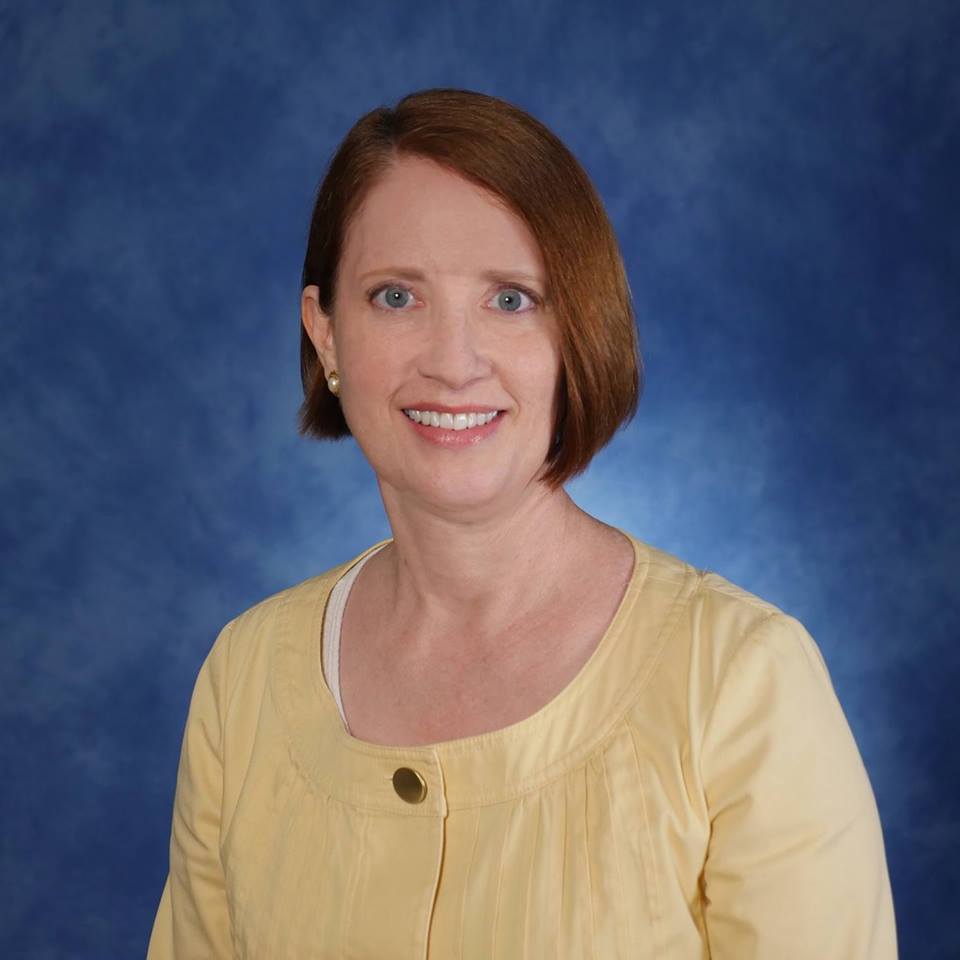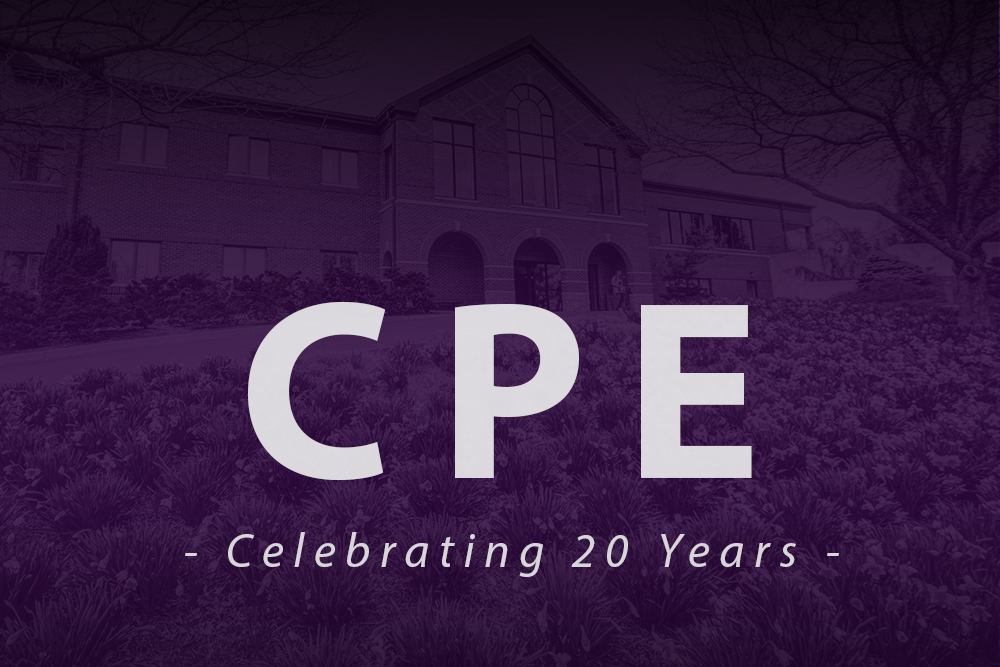The Clinical Pastoral Education program at Eastern Mennonite Seminary celebrates its 20th anniversary this academic year. Since 1999, 290 people have been trained through the seminary’s program. They serve and minister in a variety of contexts and many states, carrying their CPE practice learnings with them wherever they work.
We’ve invited a series of guest writers to share about how CPE training has shaped their life and ministry. Join us at a celebration during the January 2020 School for Leadership Training. To learn more, visit https://emu.edu/seminary/slt/
Read reflections by Anne Weaver and Shawn Gerber.
***

Melanie K. Lewis MDiv ‘14 is lead chaplain for Valley Health System’s six hospitals.
Eastern Mennonite’s CPE program changed the trajectory of my career aspirations, entirely. I began seminary as a postulant for ordination to the priesthood in the Episcopal Church. Congregational ministry was where I saw myself, and that call had been affirmed by my sending parish and by my denomination.
A summer unit of CPE, which I did between the first and second years of seminary, is required for ordination in my denomination. Like many Episcopal seminarians, I initially saw this as a requirement to “get through,” and one that wouldn’t have much to do with my ministry. I was like many people going into the training, in that I didn’t understand that CPE is not just concerned with learning to function in a clinical environment. I didn’t realize that it would be learning about myself and how God was connecting me to other people. I did my clinical rotations in a level II trauma center, and experienced a summer of trauma, crisis and death. I remember telling my husband at the end of that summer, “Being a hospital chaplain is amazing work, but I could never do it. It’s just too hard.”
Over time, however, I realized that God was calling me to this “too hard” ministry. Initially I resisted it, because people’s emotions affect me greatly; I couldn’t imagine putting myself in the way of peoples’ crises on a regular basis. I also didn’t appreciate so many of the hard questions that we had to ask ourselves through the training; after all, it’s not usually easy to see one’s faults. CPE was extremely humbling for me. I did take more units of CPE as I finished my Master of Divinity, however, eventually completing four.
Over time, I learned to know myself in ways that I would never have been able to do otherwise – to see my own neediness and anxiety and to recognize my various emotional triggers. In knowing these things, I was better able to to put them aside, and focus on the person/s in front of me, and to honor their needs. I also learned self-care that enabled me to be resilient, and God made me stronger through the many events that I experienced. CPE equipped me for the ministry of meeting people where they are in traumatic or critical situations, and walking with them, supporting them emotionally and spiritually, and sitting with them in their pain.
Today I am the lead chaplain of a six-hospital system. I simply would not be qualified for this job without my CPE training. I divide my time between my leadership and training duties, and supporting patients, families, and staff – mostly in the four Intensive Care Units of our main trauma center. Much of my pastoral care time is spent doing things like supporting those who have made the hard decision to remove life support from a loved one, or who have lost someone in a trauma.
I am more grateful to Kenton and Penny than I can express. Their patience, insight and wisdom has challenged me in ways that helped me to grow in completely unexpected ways. As they move the program into its next 20 years, I have two hopes for CPE: that it can continue to grow, and that it can become more affordable. I would also recommend that at least half a unit be required for the Master of Divinity degree. Everyone engaged in ministry (or any work at all!) would benefit from the training provided through CPE.
Melanie Lewis was born in Germany to American parents. She and her younger brother grew up all over the U.S. and Europe, traveling as a result of their father’s Air Force career. The Lutheran Church was her foundational community; she was baptized at the family church in Norway, confirmed in Worms, and grew up serving her church in every way she could.
As an undergraduate, she attended Sewanee: The University of the South, and was exposed to the Episcopal Church. As a result of that influence, she fell in love with the Episcopal Church, and became Episcopalian after her marriage to her husband Richard. Before experiencing a mid-life call to ministry, Melanie had an academic career, teaching comparative literature and medieval studies, and serving in university leadership. She graduated from EMS in 2014. In addition to her lead chaplaincy position for Valley Health System’s six hospitals, she also serves Christ Episcopal Church in Millwood, Virginia, where she preaches once a month. Melanie and Richard have a grown son and daughter, and live in Winchester, Virginia.
